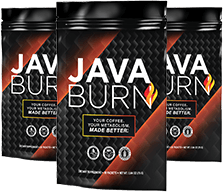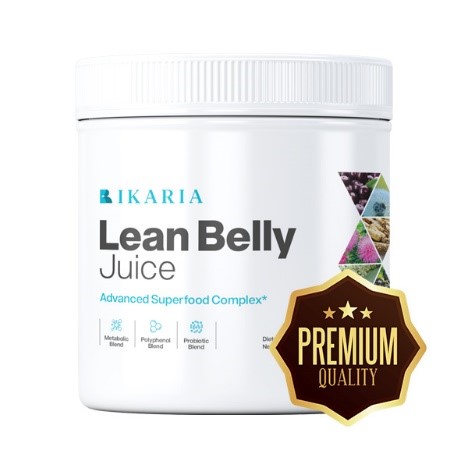Breaking News: Hydration is necessary. And it does not finish at merely quenching your thirst on a scorching day.
“Staying well-hydrated is a key part of a healthy lifestyle, but one that is often overlooked,” says Jessica Garay, Ph.D., RDN. CSSD, FAND, nutrition professor at Syracuse University, who specializes in sports nutrition, adult weight management, and dietary supplements.
“Being optimally hydrated can benefit your workouts, your sleep, even your appearance.”
Expanding on this, Kelsey Costa, MS, RDN, registered dietitian and nutrition marketing consultant for the National Coalition on Healthcare, says hydration is essential for a number of physiological capabilities, together with:
- sustaining body temperature
- lubricating joints
- transporting vitamins to offer power
However, understanding the significance of hydration is simply a part of the optimum efficiency equation. You additionally need to perceive the right way to hydrate quick. Ahead, Garay and Costa share precisely how a lot water you must drink a day, together with the right way to speed up hydration if you’re depleted.
How Much Water Should We Drink Daily?
Costa says people ought to intention to drink roughly 0.5 to 1.0 ounce of water per pound of body weight each day–cautioning that this basic suggestion can range considerably, relying on components corresponding to bodily exercise, local weather, health situations, and particular person metabolic wants.
For athletes or people participating in intense bodily exercise, the hydration wants might be considerably increased. “Strenuous activities cause excessive sweating, leading to a substantial loss of fluids and electrolytes from the body,” Costa explains. “The same holds true for those who live in hot and humid climates, where sweat is the primary mechanism for cooling down the body.”
Garay affords an analogous guideline as Costa, however works from the low finish of her vary, saying to take your weight in kilos and divide that by two for the whole ounces you must drink. She provides that for those who exercise regularly, you’ll need so as to add roughly 8–12 ounces of extra fluid per hour of exercise.
Related: 4 Creative Ways to Stay Hydrated Throughout Your Day
How Long Does It Take To Rehydrate Properly?
Despite what advertising says about IV hydration drips or electrolyte powders, Garay says the body is fairly fast to answer modifications in hydration standing, good or unhealthy. “If you are dehydrated and begin to drink more fluid, things will improve within a few minutes up to an hour or so, depending on how dehydrated you were,” she confirms.
No shock right here, however “the time it takes to rehydrate can vary depending on the individual’s hydration status, the intensity of dehydration, and the method of rehydration,” provides Costa. “Typically, for delicate to reasonable dehydration, it takes only some hours of consuming fluids to revive ample hydration standing.”
It’s important to note that in severe cases, dehydration may require medical attention, intravenous (IV) fluids, and longer periods of rehydration. “It’s essential to listen to your body’s signals and seek medical guidance as needed,” says Costa.
What Is the Fastest Way To Rehydrate?
If you’re not drinking enough water, one way to jumpstart the hydration process is to reach for enhanced water: “Mineral water, coconut water, or water with added electrolytes can supercharge rehydration due to their electrolyte content,” says Costa. She notes that for most individuals and under normal circumstances, these options are not always necessary, and regular water intake suffices.
Electrolytes help regulate fluid balance and ensure efficient absorption of water into the cells, and a small amount of carbohydrates in a beverage may help with fluid retention and absorption. “Therefore, such individuals should consider drinks that contain electrolytes and carbohydrates, such as electrolyte drinks or coconut water, for optimal rehydration,” Costa says.
Costa shares more detailed guidance for the exercise crowd on the best way to beat dehydration, according to guidelines from the National Athletic Trainers’ Association (NATA):
- Start with the intake of 500 to 600 ml of water or sports drink two to three hours prior to exercise, followed by an additional 200 to 300 ml just before exercise.
- Continue with 200 to 300 ml every 10 to 20 minutes during the workout session, to maintain hydration levels effectively.
- Post-activity, replenish any fluid loss, and considering water quality, particularly its alkalinity and mineral content, to further enhance hydration. (The amount of water you drink will vary based on the intensity of your workout and its duration.)
It bears repeating that “for the general population, drinking plain water is an effective way to rehydrate quickly,” says Costa. “Prevention is key. Make it a habit to regularly hydrate, particularly in hot weather or during physical activities.”
Related: The 6 Most Basic Hydration Rules Every Athlete Should Know
What Hydrates Faster Than Water?
As we touched on above, sure drinks like sports activities drinks, coconut water, or specifically formulated rehydration options can rehydrate the body quicker.
“Carbohydrates in rehydration drinks can accelerate hydration by facilitating water absorption in the intestines,” Costa notes. “However, some of these options should be consumed in moderation due to their high sugar and sodium content.”
Garay says the most effective fluid for rehydration is ultimately the one that you will drink most consistently. “Based on the beverage hydration index, milk and sports drinks ‘scored’ better than regular water. But it really comes down to what you like to drink and can commit to drinking enough of.”
You’ve probably heard that a great way for an athlete to rehydrate following an intense, sweaty workout is to have a sports drink that contains electrolytes. “This will help ensure that they are replacing the sodium (and other minerals) lost in their sweat,” Garay says, including that sodium is essential as a result of wherever it strikes in our body, water will observe it.
A great way to find out how a lot you’ll need to drink is to weigh your self earlier than and after a exercise. “You should aim to drink 1.5 times the amount [of fluid] you lost in the next several hours after you finish the workout,” Garay says. “For example, if you lost two pounds of water weight, then you should aim to drink three pounds (48 ounces) of fluid to replenish.”
Related: The 13 Best Hydration Drinks and Drink Mixes
Should We Only Be Concerned About Dehydration When We Feel Thirsty?
According to Costa, Dehydration isn’t merely a matter of thirst but a condition that, if not monitored, can significantly impact your overall health and performance. “Chronic, extreme dehydration can result in severe health points corresponding to impaired cognitive perform, loss of consciousness, organ injury, and, if left untreated, even demise,” she says.
Particularly these engaged in bodily actions, stay in scorching climates, and are part of older grownup populations, should not rely solely on the feeling of thirst to find out hydration wants. And Costa says want ought to finally decide hydration technique. “It’s important to monitor your hydration status closely and adjust your fluid intake accordingly.”
Costa additionally notes that going overboard with hydration is one thing to be cautious of, too, saying, “Over-hydration or excessive water intake, though rare, can also lead to electrolyte imbalances and other health concerns.”
If you’re uncertain about how a lot fluid you need to be consuming to your distinctive wants, search steering from a registered dietitian or healthcare skilled.



















Discussion about this post